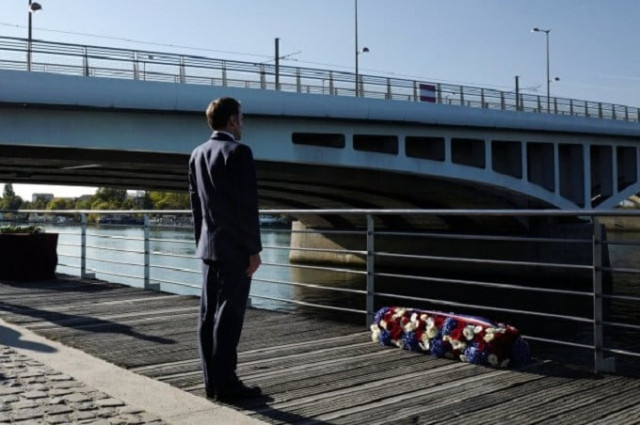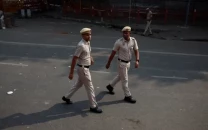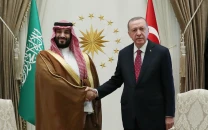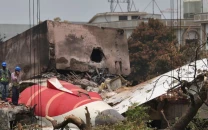Macron condemns 'inexcusable' 1961 crackdown on Algerian protest
Macron says 'crimes committed that night' under Paris police chief Maurice Papon 'inexcusable'

French President Emmanuel Macron condemned a 1961 deadly police crackdown on an Algerian protest in Paris as an "inexcusable" crime but, as expected, stopped short of offering a formal apology.
Sunday marks 60 years since the Paris police killed dozens and injured scores more in a tragedy that had been covered up by authorities.
The precise number of victims is unknown although some fear it could be hundreds.
"The repression was brutal, violent, bloody. Nearly 12,000 Algerians were arrested...In addition to many wounded, several dozen were killed, their bodies thrown into the Seine," the Elysée said in a statement.
Macron is only the second French president to acknowledge the event, but his remarks were released in a statement instead of in public. He also did not issue a formal apology.
More than 25,000 people had attended the 1961 protest against a curfew for Algerians, which was organised by the French wing of the Algerian National Liberation Front.
In a first for a French president, Macron commemorated the tragedy on the banks of the Seine where bodies had been found.
Read France opens privacy probe into audio app Clubhouse
He said the "crimes committed that night" under Paris police chief Maurice Papon were "inexcusable", according to the Elysée statement.
The French president held a minute of silence alongside families impacted by the tragedy and those who worked to make sure the truth was acknowledged, the government added.
"(Macron) goes further than Hollande in the precision of the facts but without naming colonialism," Dominique Sopo, the president of SOS Racisme, an organisation that combats against racism.
Sopo added that the "crime is reduced to the responsibility of Maurice Papon...there was indeed a head of government and a head of state who decided who was the prefect of police."
Papon remained in his position until 1967 and later served in government until it was revealed that he had assisted in the deportation of Jews during World War II.



















COMMENTS
Comments are moderated and generally will be posted if they are on-topic and not abusive.
For more information, please see our Comments FAQ